EE 4G fieldtest results: Is it really as fast as the network claims?
We've tested out EE's 4G network around London using a Huawei Mobile Wi-Fi device and a Sony Xperia S.
The UK's first mobile 4G network and Fibre Broadband services were launched by EE on 30 October across 11 cities.
We got our hands on the portable Huawei Mobile Wi-Fi E589, which packs 4G connectivity and put it to the test in London to see just how fast it is.
How we tested?
We tethered the Mobile Wi-Fi device to the Sony Xperia S and tested it at seven locations. We aimed to get a diverse range of areas from one of the most busy train stations in London to a wide open space in Regents Park.
We started off at the Dennis Offices (Cleveland Street) and went to Canary Wharf (high-rise buildings), Kings Cross (busy station), London Bridge, Waterloo (both south of the river), Oxford Street (busy high street) and Regents Park (wide open space).
To test the download and upload speeds we used the Speedtest.net app. We took three readings at each location and then averaged it out.
To help corroborate download speeds we also timed how long it took to download a 200MB file at each location. This is typically the size of one 45-minute programme hosted on the BBC's iPlayer.
Results
We found average download speeds ranged between 2.44-15.91Mbps, a much broader range than EE touts (8-12Mbps). Most of our test results were on the lower end of the spectrum, which wasn't great and we got nowhere near the touted maximum speed of 40Mbps.
Get the ITPro daily newsletter
Sign up today and you will receive a free copy of our Future Focus 2025 report - the leading guidance on AI, cybersecurity and other IT challenges as per 700+ senior executives
Unsurprisingly, we found that the more congested the location, the slower the download speeds as more people are using their devices. Regents Park offered the best download speeds, whereas Oxford Street was the slowest.
The test results from the Speedtest.net app were as follows:
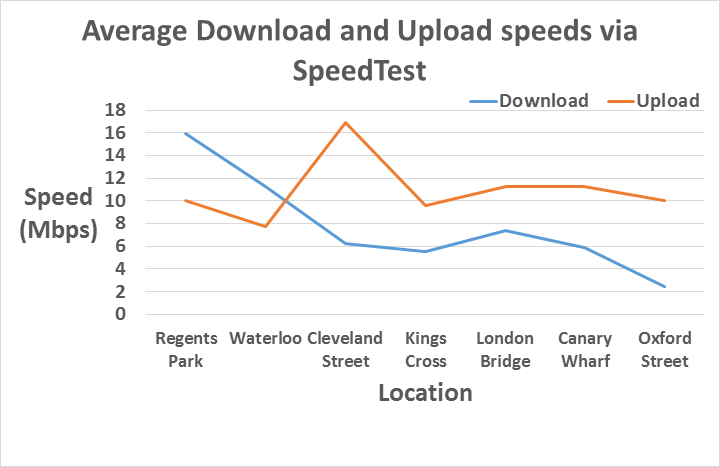
Our file test download backed up the Speedtest.net results when it came to download speeds, with the locations having the same order it terms of speed.
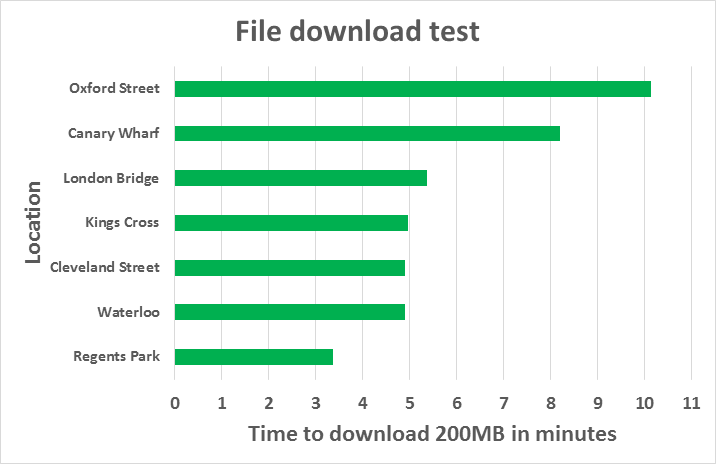
In terms of real-world performance this meant that it took just over three minutes to download 200MB at Regents Park - the area where we had the fastest connection. In comparison, it took over three times longer to download the same file at Oxford Street. At most of the other test locations it took just over five minutes.
In comparison, the results of the upload speeds were far more unpredictable. For example, upload speed at Oxford Street 9.99Mbps, was pretty much on par with Regents Park (10.05Mbps) even though there was a massive difference when it came to downloading content. There was also an unexplained peak at our office on Cleveland Street (16.91Mpbs).
On the plus side, we did find 4G upload speeds averaged between 7.7-16.91Mbps, which is well above the range quoted by EE (5-6Mpbs). This suggests that 4G is going to be much better for uploading documents and attachments than 3G.
Is it worth it?
With 24-month consumer contracts starting at 36 per month and including a monthly allowance of just 500MB, 4G is expensive considering the speed on offer. For SMBs, packages will start at 35 per month ex VAT.
Unless you splash out on the larger 4-8GB packages you could find yourself using up the allowance in minutes if you want to download video content, especially if it's HD.
If you commute into one of the major cities with 4G from surrounding towns, you'll drop down to HSPA+ connectivity.
Verdict
Unless you’re in urgent need for fast mobile upload speeds or plan to use wireless connectivity instead of fixed broadband, we’d recommend holding off until other networks such as Three start offering packages as the price across the board will most likely be driven down.
-
 Executives think AI can supercharge cybersecurity teams – analysts aren’t convinced
Executives think AI can supercharge cybersecurity teams – analysts aren’t convincedNews As organizations adopt AI, frontline cybersecurity workers are worried AI will reduce job security and increase their manual workload
By Rory Bathgate
-
 Software deployments are plagued by delays
Software deployments are plagued by delaysNews UK software deployments are running an average of four months beyond schedule, new research shows, with delays affecting more than eight-in-ten businesses.
By Emma Woollacott
-
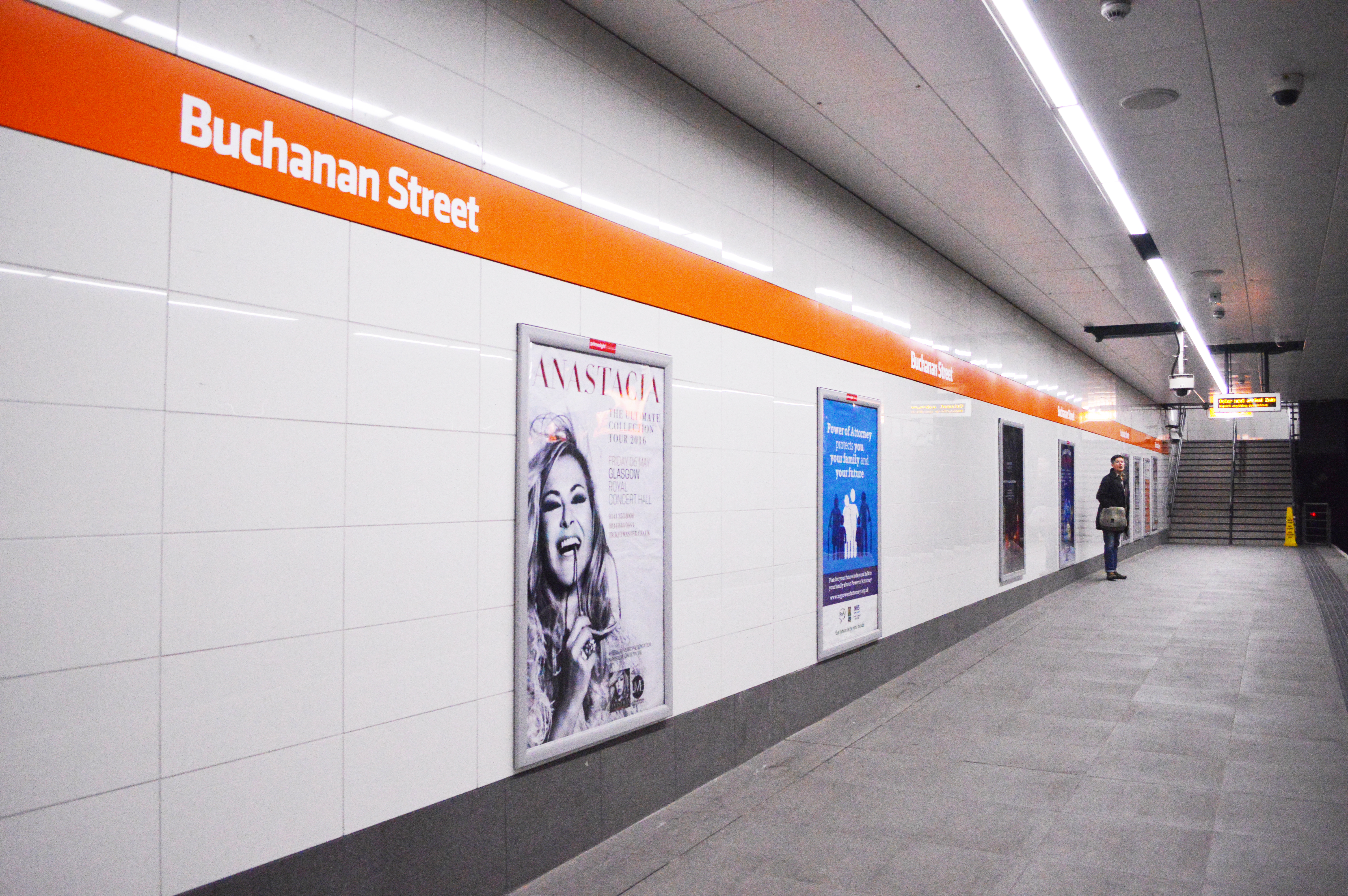 EE rolls out 4G across Glasgow's underground network
EE rolls out 4G across Glasgow's underground networkNews The network is currently restricted to EE customers but is likely to expand in the near future
By Sabina Weston
-
 Nokia and NASA join forces to bring 4G to the moon
Nokia and NASA join forces to bring 4G to the moonNews Cellular service will provide the communications needed for meaningful moon exploration
By Tyler Omoth
-
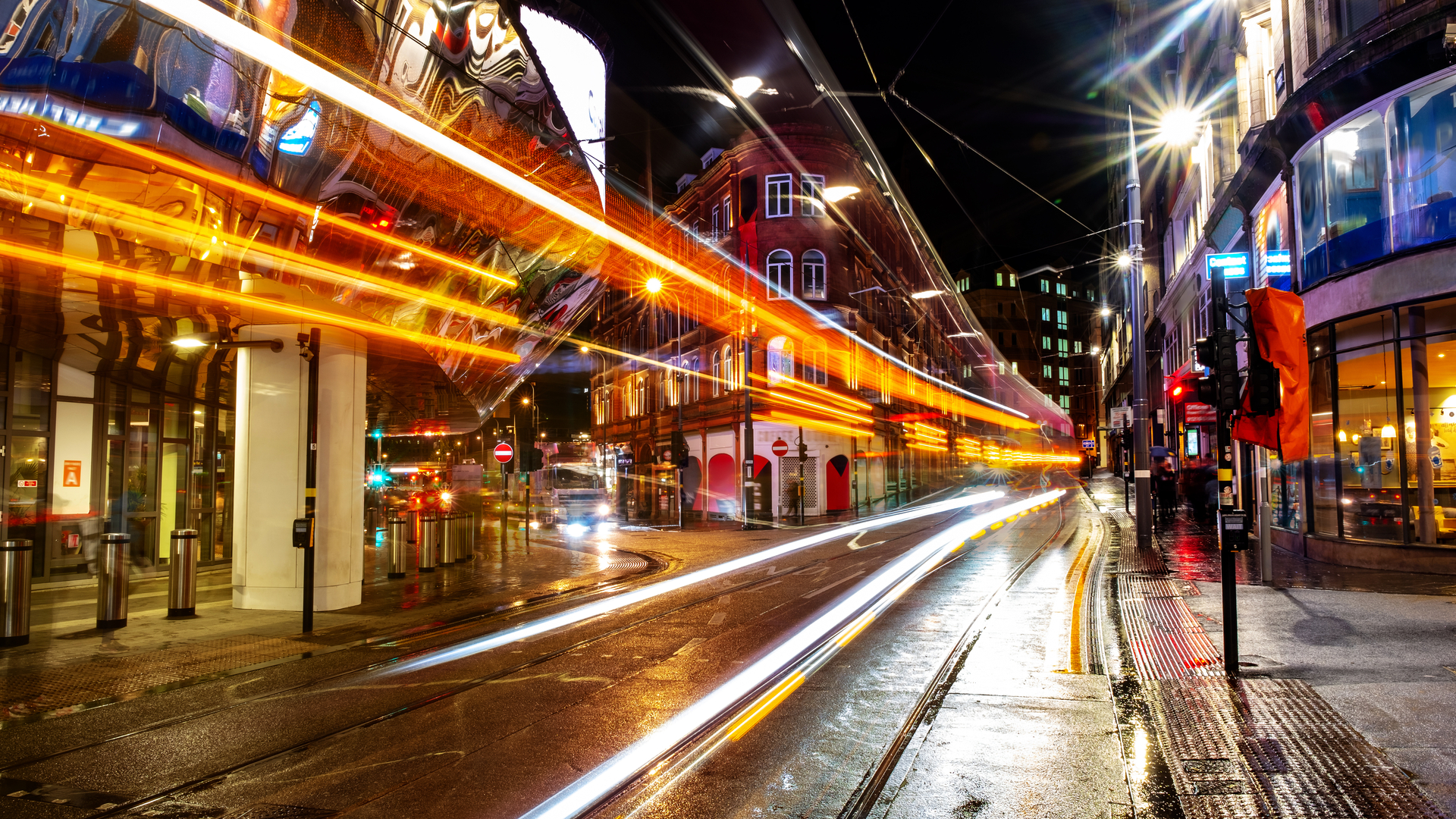 Birmingham crowned the fastest UK city for 4G download speeds
Birmingham crowned the fastest UK city for 4G download speedsNews While Birmingham also recorded the highest speed hike over 2019, London came in at a middling 9th place
By Keumars Afifi-Sabet
-
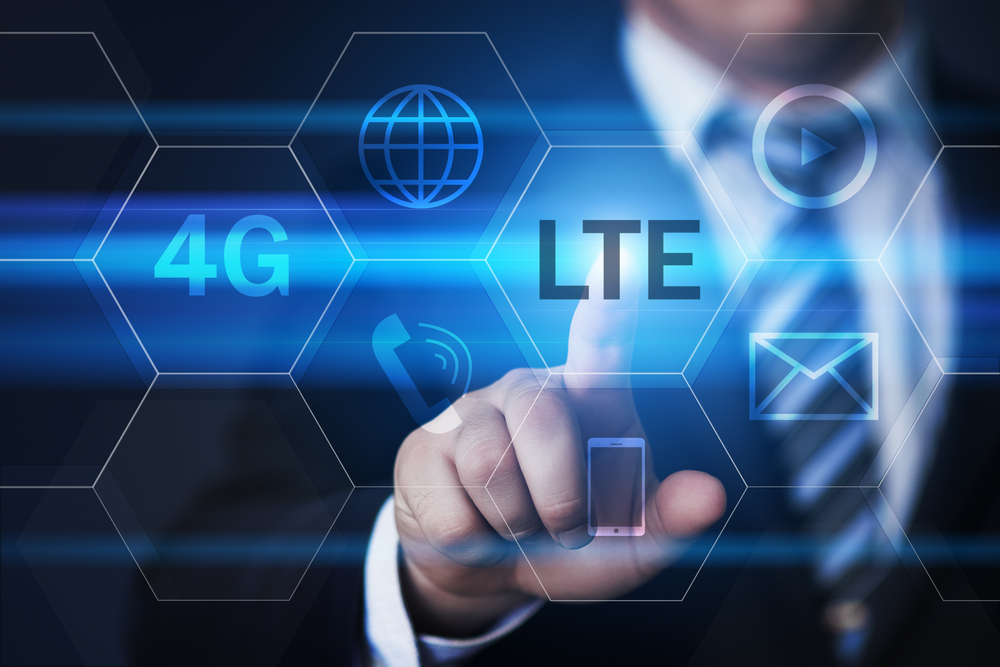 LTE vs 4G: Which is better?
LTE vs 4G: Which is better?In-depth Comparing LTE vs 4G has become common in recent years, but how exactly do they differ, and is 4G faster?
By Jane McCallion
-
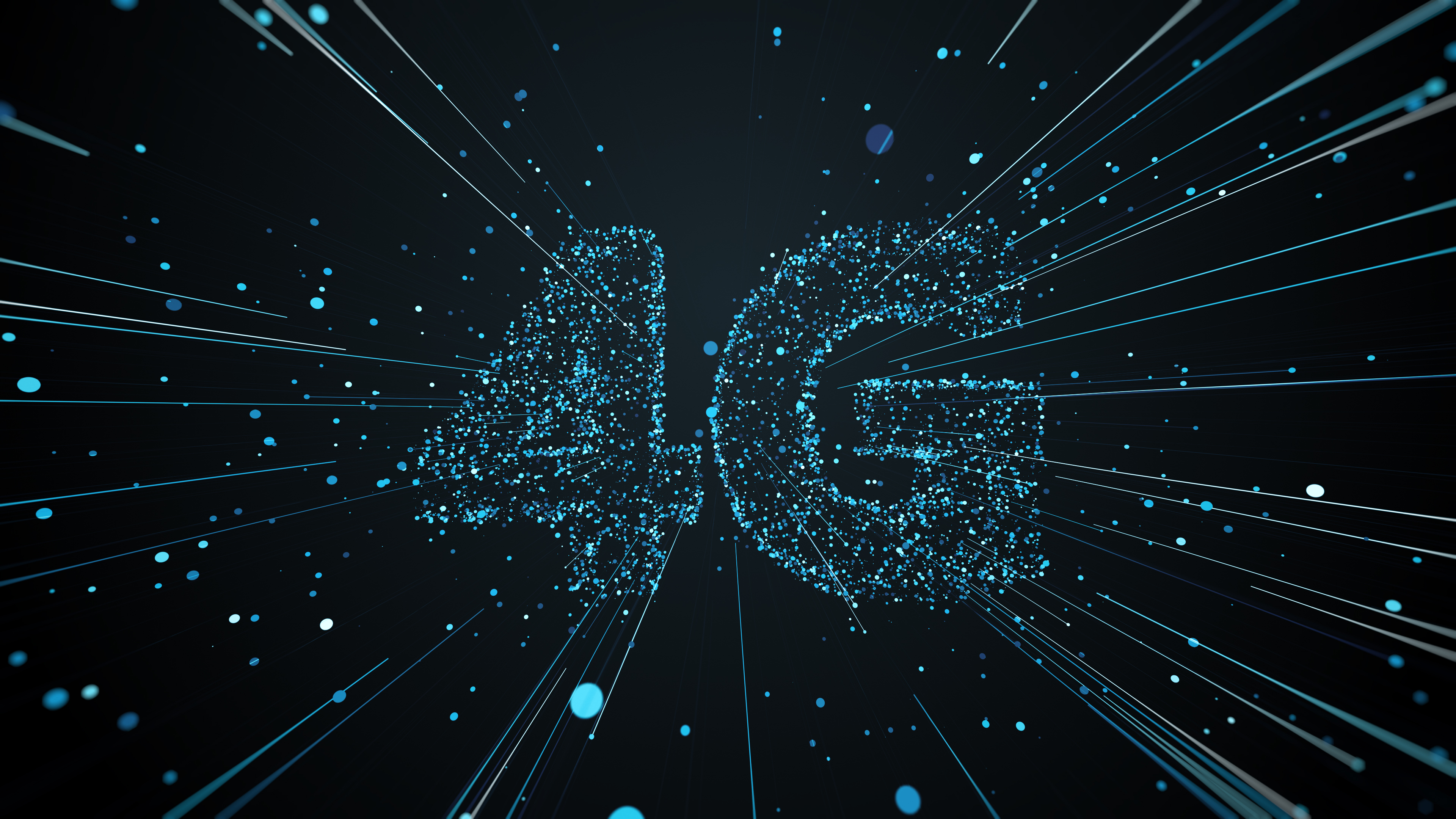 What is 4G?
What is 4G?In-depth A look at the fourth generation of mobile networking technology and its availability in the UK
By Rene Millman
-
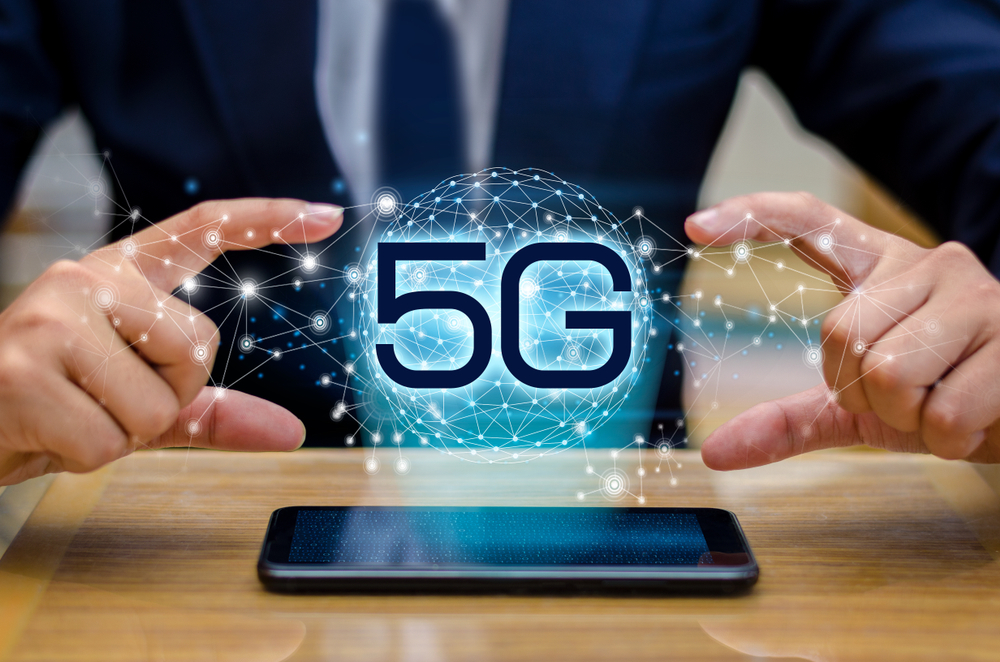 4G vs 5G - what's the difference?
4G vs 5G - what's the difference?Vs From 3G to 4G, mobile connectivity has revolutionised our lives. Now 5G is set to do it again
By Bobby Hellard
-
 The best 4G network
The best 4G networkIn-depth Every mobile provider offers 4G contracts, but which one is the best for you?
By Carly Page
-
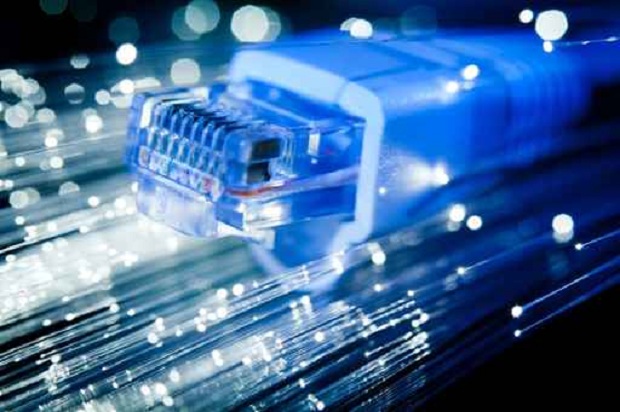 More than a million UK properties don't have access to 'decent' broadband speeds
More than a million UK properties don't have access to 'decent' broadband speedsNews Ofcom's Connected Nations report finds broadband is still lacking across 4% of the UK
By Roland Moore-Colyer